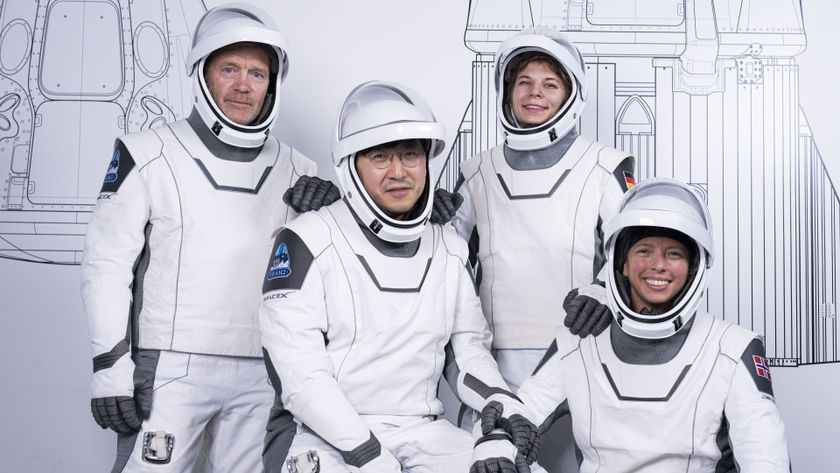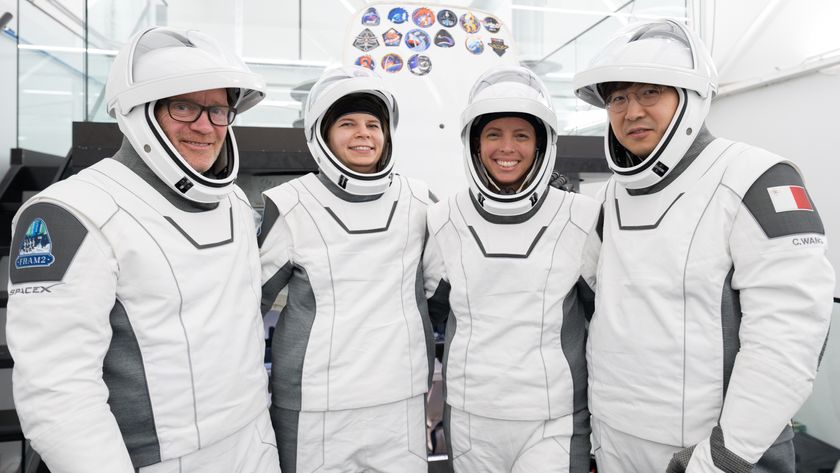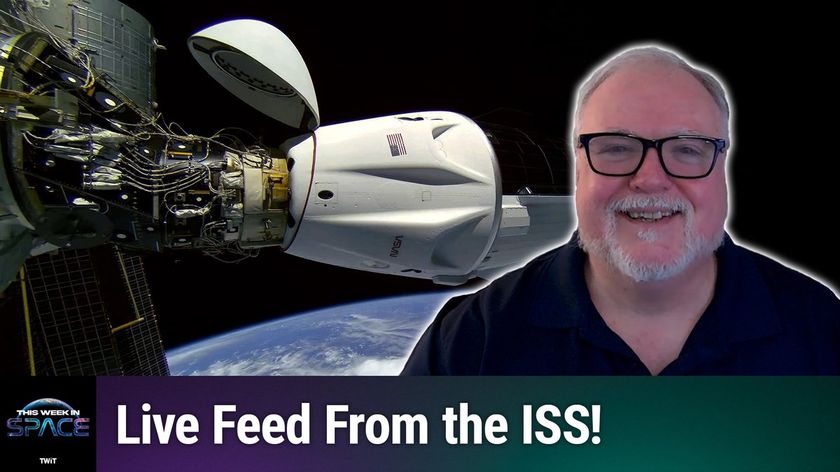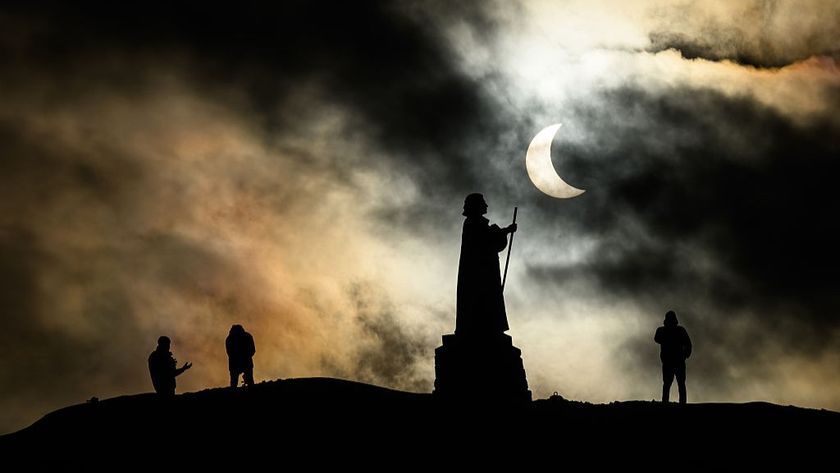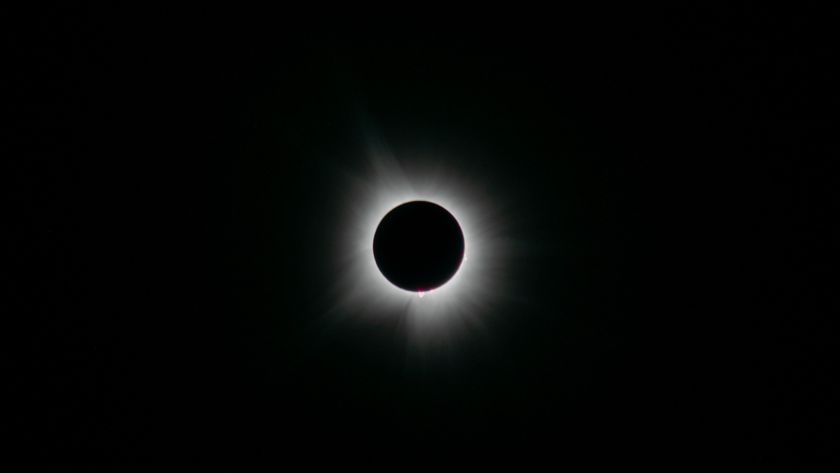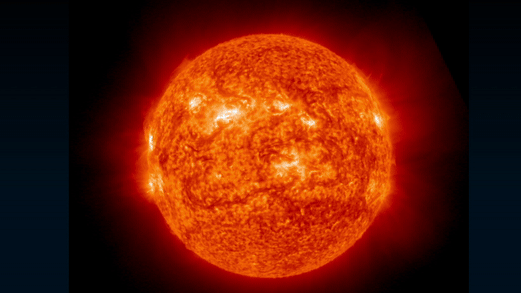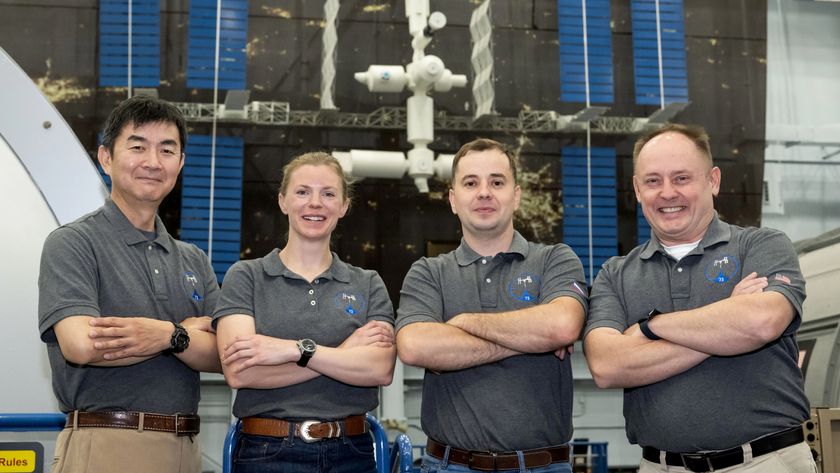'Space Tourists' Documentary Shows Reality of Space Fantasy
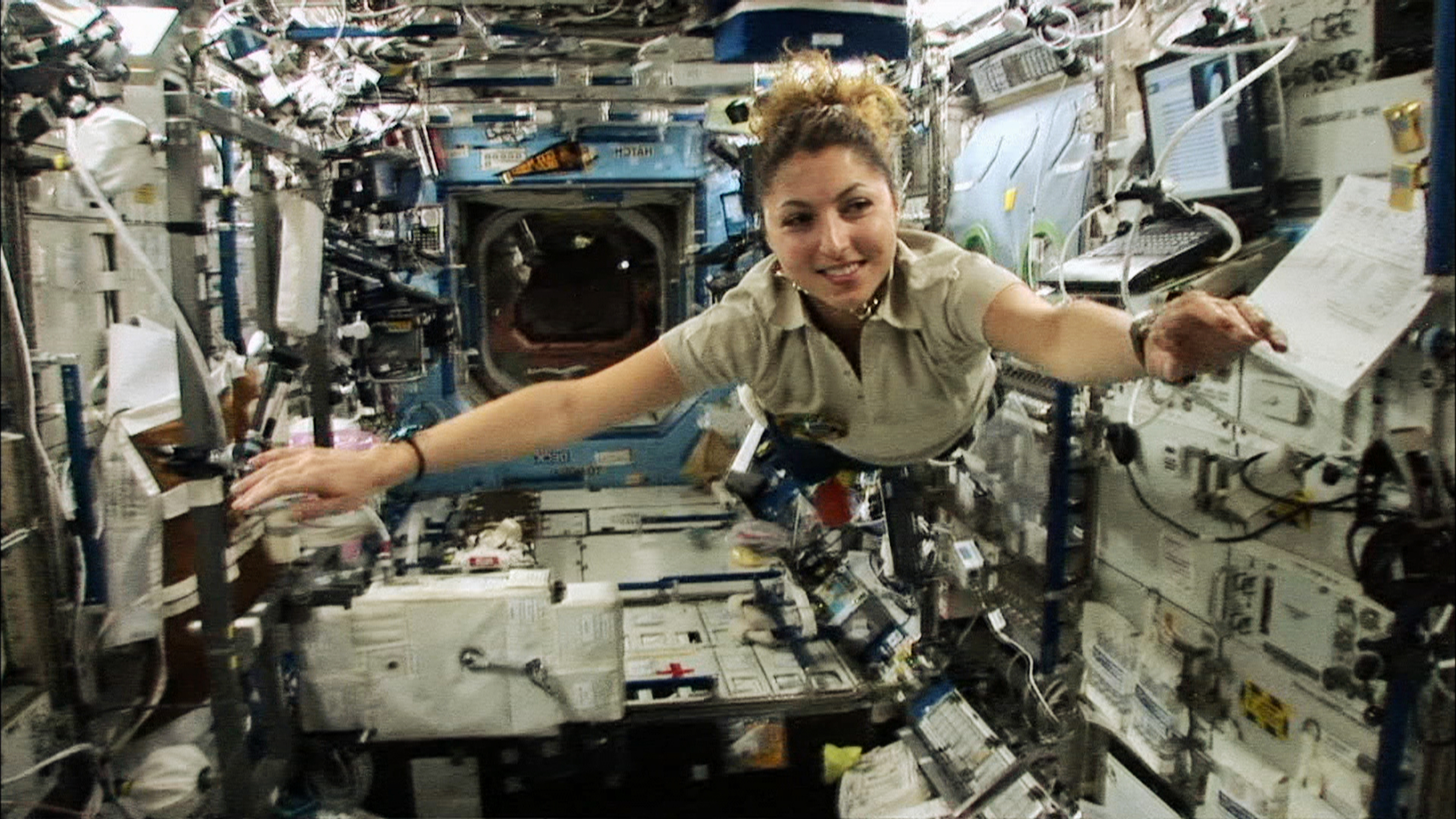
What is the price that we pay to go to space?
Filmmaker Christian Frei explores this question in his documentary "Space Tourists," which deftly weaves together stories from 245 miles (394 kilometers) above Earth on the International Space Station, where one woman lives out her dream of flying in space, to inside the walls of the legendary Baikonour Cosmodrome, the launch site for the Russian space agency since the late 1950s, to the parched and desolate steppes of Kazakhstan in Central Asia, where unsuspecting lives are also touched by space travel.
"Space is an eternal fantasy, and it's a fascinating fantasy," Frei told SPACE.com. "I was just curious about the reality behind it. I found out that this reality is so full of paradoxes and surprises, and I wanted to try to communicate and show these surprises."
The documentary premiered at the Zurich Film Festival in October 2009. It will be screened tonight (Nov. 11) as part of the Margaret Mead Film Festival at the American Museum of Natural History in New York. The film will also debut on the Documentary Channel on Sunday (Nov. 13) at 8 p.m.
Ticket to space
In 2006, Anousheh Ansari, an Iranian-American billionaire, became the first private female space explorer when she paid $20 million to journey to the International Space Station for 10 days. Ansari's trip was organized by the Virginia-based space tourism firm Space Adventures, and the expedition earned her a place among the ranks of an exclusive group of wealthy individuals who paid to fly in space.
The film follows Ansari on her journey, watching as her passion for space travel is made a reality. Meanwhile, on the ground, photographer Jonas Bendiksen narrates a ground tour in Kazakhstan of communities and people who are affected in a very different way by Russia's space program.
Get the Space.com Newsletter
Breaking space news, the latest updates on rocket launches, skywatching events and more!
Bendiksen introduces viewers to scrap metal hunters in Kazakhstan, who camp out in the country's remote deserts and patiently wait for spent rocket parts to come crashing to the ground after launches from the Baikonour Cosmodrome. The photographer also travels to isolated villages where fallen rocket debris, some of which still carries toxic substances, is found by farmers and shepherds and repurposed tools and roofs.
Frei was first compelled to make the film after reading a news article about a wealthy Japanese businessman named Daisuke Enomoto who was paying to travel to the International Space Station.
"I knew within two hours that it was going to be my next film," Frei said.
Due to a health concern, Enomoto was disqualified from spaceflight late in his training, and Ansari, who was earmarked as a backup crewmember at the time, suddenly found herself in the vacant seat of the Russian-built Soyuz capsule.
"Interestingly enough, I had no idea Christian was making the film," Ansari told SPACE.com. "It was only three weeks before the flight when the switch happened, and I went into quarantine and never had the chance to meet him."
Frei was forced to switch gears, but luckily decided to keep filming.
"In a way, Anousheh came into my film as if from outer space," Frei said. "That's the nice thing about documentary film — you have to be open to these changes and you have to be open to new people."
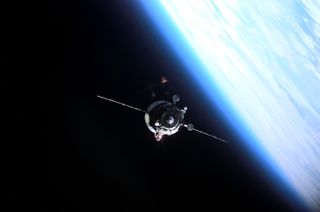
Reality of the space race
Despite the unexpected change, Frei maintained his curiosity and delved below the surface to find some unexpected stories and a rich cast of characters.
"Through this topic of space tourism, I got interested in this hidden part of the space race," he explained. "I just got curious, and thought it would be thrilling to portray what's left of this former glory of the Soviet space exploration."
But, this did not come without its share of challenges, and gaining access and approval to film inside the notoriously fortified Baikonour Cosmodrome was a big hurdle for the filmmaker.
"Access was the big challenge and the biggest problem from the beginning," Frei said. "That was not a surprise because the space world is totally linked to the military world. Baikonour was a hidden place, and the Russian way of dealing with media is very restrictive. But, I wanted people to experience this trip, to be close to the emotions and the actions."
In a serendipitous encounter with a group of stamp collectors, Frei found the inroads he needed to the Russian officials and cosmonauts that could grant him approval to film within the hallowed walls of Baikonour.
"It was an absurd but also beautiful discovery," Frei said. "It was through these stamp collectors — they had the mobile phones of many officials, and that's how I found most of the ways in."
The result is a hauntingly beautiful portrayal of space travel, and what the cost is to individuals, countries and humanity as a whole.
When asked whether he would take a trip to space himself if he had the chance, the filmmaker is quick to respond.
"That's easy to answer," Frei said. "If I only had the $30 million or $35 million it now takes, I would first go with my other dreams as a filmmaker. But, if I was a billionaire, I would do it. I don't know if I have the courage, but I would at least try to have the courage, and yes, I would take the trip."
You can follow SPACE.com staff writer Denise Chow on Twitter @denisechow. Follow SPACE.com for the latest in space science and exploration news on Twitter @Spacedotcom and on Facebook.
Join our Space Forums to keep talking space on the latest missions, night sky and more! And if you have a news tip, correction or comment, let us know at: community@space.com.

Denise Chow is a former Space.com staff writer who then worked as assistant managing editor at Live Science before moving to NBC News as a science reporter, where she focuses on general science and climate change. She spent two years with Space.com, writing about rocket launches and covering NASA's final three space shuttle missions, before joining the Live Science team in 2013. A Canadian transplant, Denise has a bachelor's degree from the University of Toronto, and a master's degree in journalism from New York University. At NBC News, Denise covers general science and climate change.
